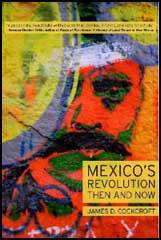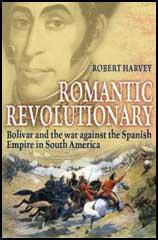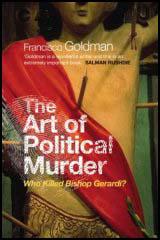South America

Title: Mexico's Revolution: Then and Now
Author: James D. Cockcroft
Editor:
Publisher: Monthly Review Press
Price: £11.95
Bookshop: Amazon
Spartacus Website: The Mexican War
Category:
Written to commemorate the one hundredth anniversary of the first predominantly anti-capitalist revolution in the world, Mexico’s Revolution Then and Now is the perfect introductory text and one that will also sharpen the understanding of seasoned observers. Cockcroft provides readers with the historical context within which the revolution occurred; explains how the revolutionary process has played out over the past ten decades; tells us how the ideals of the revolution live on in the minds of Mexico’s peasants and workers; and critically examines the contours of modern Mexican society, including its ethnic and gender dimensions. Well-deserved attention is paid to the tensions between the rulers and the ruled inside the country and the connected tensions between the Mexican nation and the neighboring giant to the north.

Title: Romantic Revolutionary
Author: James D. Cockcroft
Editor:
Publisher: Constable & Robinson
Price: £11.95
Bookshop: Amazon
Spartacus Website: History Biographies
Category:
Simon Bolivar was the archetypal romantic revolutionary. Born into privilege and nurtured in the Rousseau's philosophy of the Homme Sauvage, it was not until the young colonial visited Europe that the taper of revolution was lit that sent the young man on a death-defying quest to fight for the people of his homeland, and eventually liberate the whole of continental South America. Bolivar's struggle for liberty is a story of extraordinary courage and fortune. Since the age of the Conquistadores, South America was controlled from Spain with an iron grip. The Spanish army brutalised the people while the wealth of the continent was shipped away to Europe. In 1807, he returned to Caracas and joined the resistance movement, declaring independence for Venezuela four years later. He soon gave up politics, however, to search for a military solution, devising the 'Decree of War until Death' in July 1813, and claiming the title El Liberador. Yet once again, after initial victories he found himself fleeing for his life. His final campaign from 1817 to 1821 saw the eventual liberation of Venezuela, Columbia, Equador and Panama. He continued his commitment to liberty with the subsequent conquest of Peru. In 1825, the new nation of Bolivia was created in the spirit that had driven Bolivar himself to achieve so much - revolutionary zeal and enlightenment principles. Nonetheless, by 1828 Bolivar had declared himself a dictator. After assassination attempts and uprisings the liberator was finally hounded from office and eventually died as he waited to go into exile in Europe. Bestselling author of "The War of Wars", Robert Harvey bring a lifetime's fascination into Bolivar and explores the complex personality behind the revolutionary. He vividly recreates the story of the campaigns and draws a panoramic portrait of South America at the turning of the Spanish Empire.

Title: The Art of Political Murder
Author: Francisco Goldman
Editor:
Publisher: Atlantic Books
Price: £16.99
Bookshop: Amazon
Spartacus Website: Juan Gerardi
Category:
On a Sunday night in 1998, Bishop Juan Gerardi, Guatemala's leading human rights activist, was bludgeoned to death in his garage. Just two days earlier, a Church-sponsored report had implicated Guatemala's government in the murders and disappearances of some 200,000 civilians. The Church, realizing that it could not rely on the legal system to look into the bishop's murder, took the controversial decision to form an investigative team of young men who called themselves Los Intocables (the Untouchables) to find the killers.For seven years, Francisco Goldman followed Los Intocables' efforts to uncover the truth. He observed firsthand some of the most crucial developments in the case, including the killing and forced exile of witnesses, judges and lawyers. The Art of Political Murder is his mesmerising account of the investigation. In telling it, Goldman opens a window on the new Latin American reality of mara youth gangs and organized crime, and demonstrates, at the most intimate level, the difficulties of building democracy in a country awash with political corruption and criminality. Most of all, it is the story of an extraordinary group of courageous people and their fight for justice.
